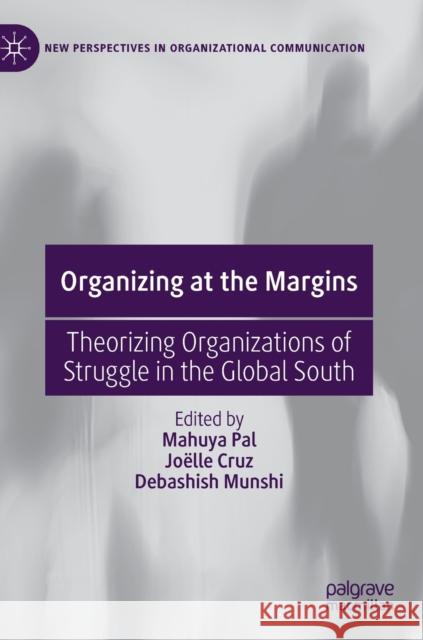Organizing at the Margins: Theorizing Organizations of Struggle in the Global South » książka
Organizing at the Margins: Theorizing Organizations of Struggle in the Global South
ISBN-13: 9783031229923 / Angielski / Twarda / 2023
Organizing at the Margins: Theorizing Organizations of Struggle in the Global South
ISBN-13: 9783031229923 / Angielski / Twarda / 2023
(netto: 688,46 VAT: 5%)
Najniższa cena z 30 dni: 655,41
ok. 22 dni roboczych.
Darmowa dostawa!
This edited volume presents complex issues surrounding economic and cultural injustices in the global South and the social imaginaries articulated by vulnerable communities in these extractive zones. These organizations of struggle by disenfranchised members in the global South bring forth a collective of knowledge to decolonize organizational theory and think of organizing a more just world.The essays in this volume critique and connect meanings of “organizations” in relation to neoliberalism, coloniality, and social justice. More specifically, scholars engage with ideas of resistance such as invisible histories in management theory, hybrid collective action, self-determination and indigenous sovereignty, and decolonizing institutions. The chapters also cover a wide range of locations including feminist movements in Latin America, the struggles of Palestinians in self-exile to connect with their homeland, and reproductive labor in Sri Lanka to the decolonial potential of Black Lives Matter in the US and insights into organizing resistance in parts of Asia and Africa.For scholars and policymakers, this book presents emancipatory essays that interrogate the cultural, social, political, and historical issues pertaining to organizations in the context of the neoliberal economy.
This edited volume presents complex issues surrounding economic and cultural injustices in the global South and the social imaginaries articulated by vulnerable communities in these extractive zones. These organizations of struggle by disenfranchised members in the global South bring forth a collective of knowledge to decolonize organizational theory and think of organizing a more just world. The essays in this volume critique and connect meanings of “organizations” in relation to neoliberalism, coloniality, and social justice. More specifically, scholars engage with ideas of resistance such as invisible histories in management theory, hybrid collective action, self-determination and indigenous sovereignty, and decolonizing institutions. The chapters also cover a wide range of locations including feminist movements in Latin America, the struggles of Palestinians in self-exile to connect with their homeland, and reproductive labor in Sri Lanka to the decolonial potential of Black Lives Matter in the US and insights into organizing resistance in parts of Asia and Africa. For scholars and policymakers, this book presents emancipatory essays that interrogate the cultural, social, political, and historical issues pertaining to organizations in the context of the neoliberal economy.











